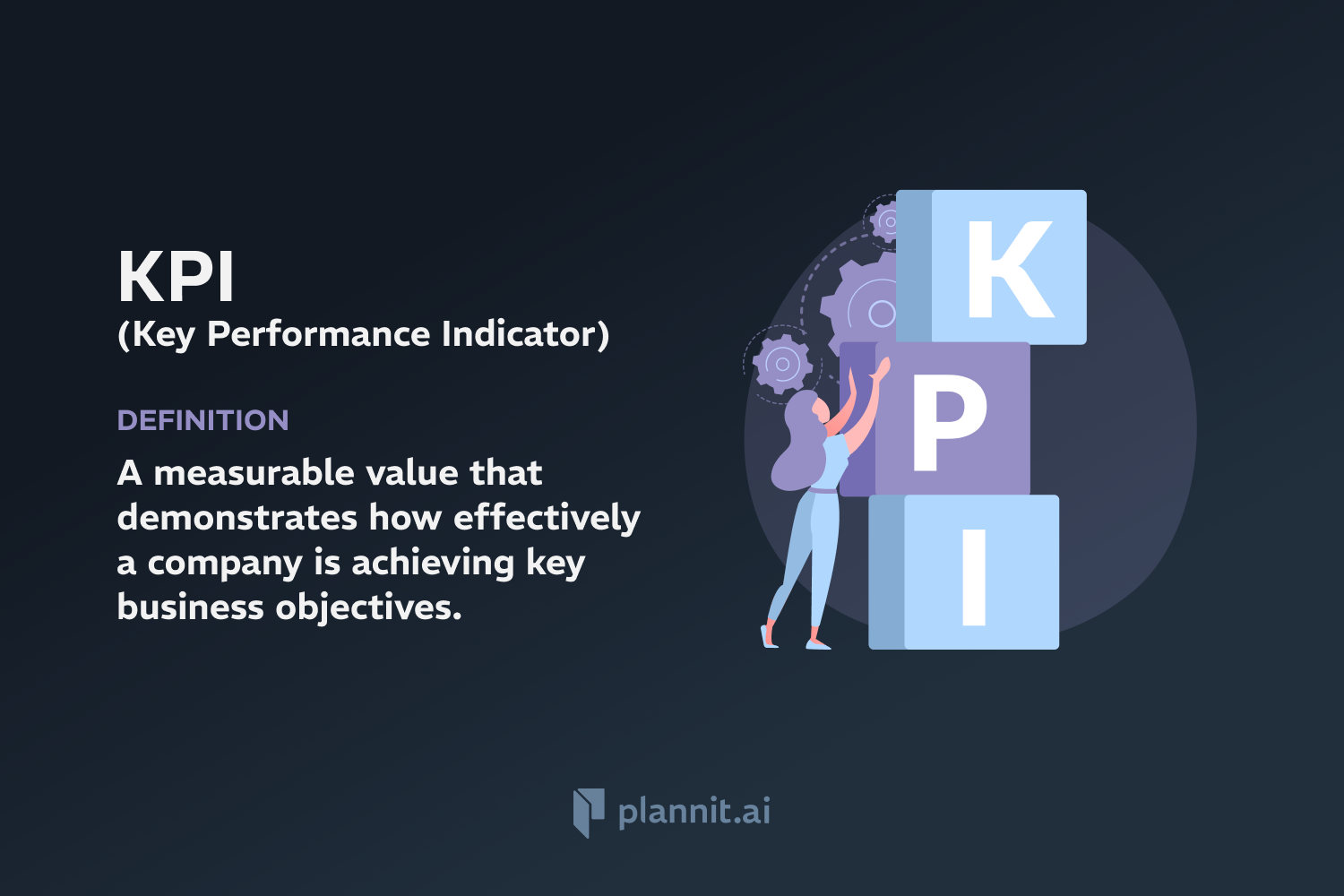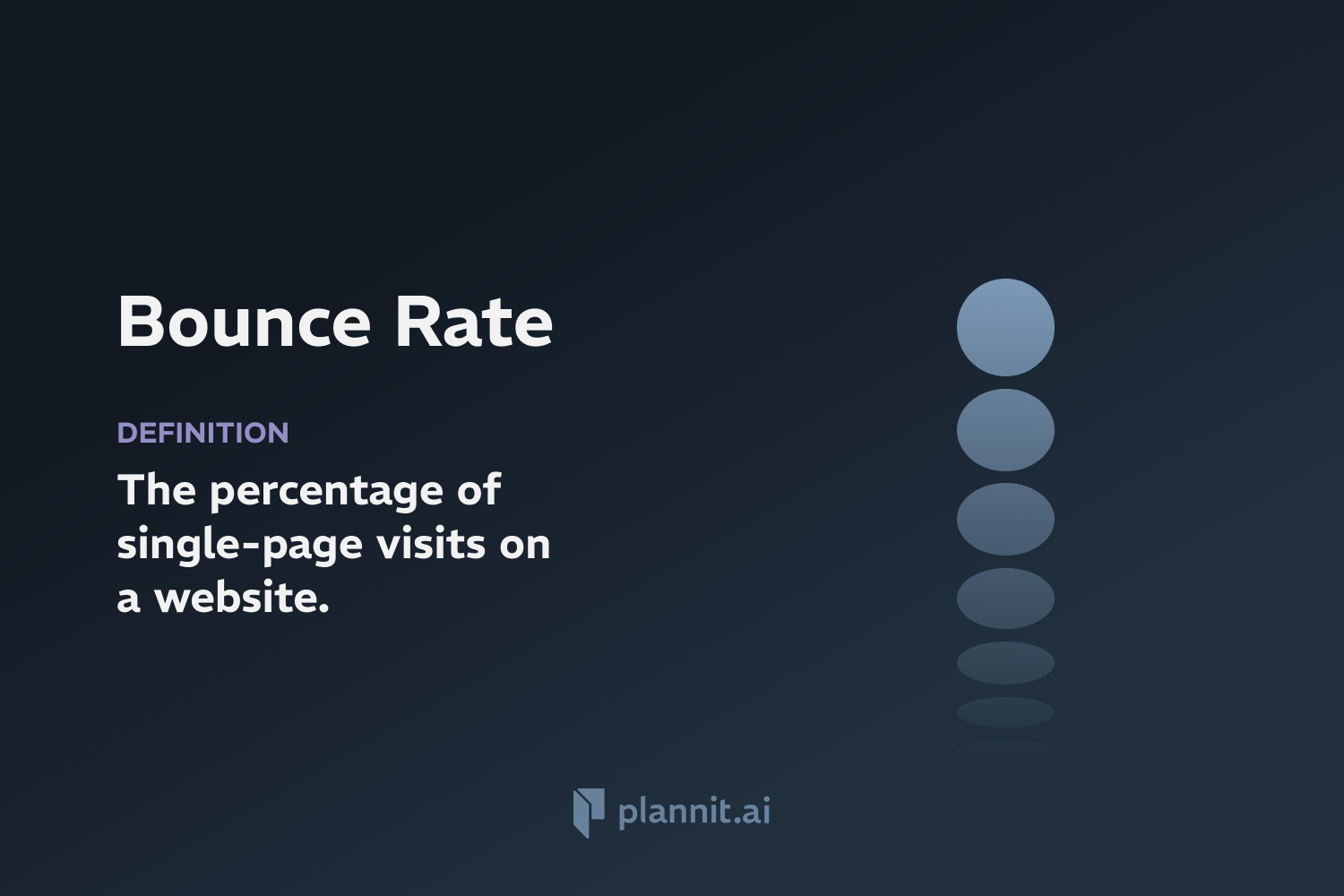Need Help With Your Business Plan?
Answer tailored questions and get a detailed business plan in minutes.
Key Performance Indicators (KPI's): Definition & In-Depth Explanation

Key Performance Indicators (KPIs) are quantifiable measures that are used to evaluate the success of an organization, employee, or a specific project in achieving key objectives. KPIs are utilized across various sectors including business, government, and non-profits, to assess performance in terms of meeting strategic and operational goals. Organizations often select KPIs that focus on critical aspects of performance, aligning them with their strategic goals and objectives.
Purpose:
The purpose of KPIs is to provide organizations with actionable metrics that help in making informed decisions. They serve as a navigational instrument to guide employees and management towards achieving strategic goals by highlighting areas of success and pinpointing areas that require improvement. By tracking KPIs, companies can assess the effectiveness of their strategies and operational processes, ensuring that their actions are aligned with their overall objectives.
Example:
An e-commerce company might track a set of KPIs such as website traffic, conversion rate, average order value, and customer acquisition cost to gauge its online sales performance. For instance, if the company has a strategic goal to increase online revenue, it may focus on improving the conversion rate – the percentage of website visitors who make a purchase. An increase in this KPI would indicate successful strategies in marketing and website user experience, contributing directly to achieving the company’s revenue objectives.
Related Terms:
Performance Indicator: A type of performance measurement that is used to evaluate the efficiency, effectiveness, and quality of an organization's operations.
Metric: A quantifiable measure that is used to track and assess the status of a specific business process.
Dashboard: A visual representation of the most important information needed to achieve one or more objectives, consolidated and arranged on a single screen so the information can be monitored at a glance.
Benchmarking: The process of comparing business processes and performance metrics to industry bests and best practices from other companies.
FAQs:
How do you choose the right KPIs for your business?
Choose KPIs that are directly linked to your strategic goals and objectives. They should be relevant, measurable, attainable, and time-bound. It’s also important to ensure that they provide actionable insights.
Can KPIs change over time?
Yes, as business strategies and objectives evolve, KPIs may also need to be reviewed and adjusted to align with the new goals.
What is the difference between a KPI and a metric?
While all KPIs are metrics, not all metrics are KPIs. KPIs are the most important metrics that directly impact strategic goals and objectives, whereas other metrics may simply provide supporting information.
How many KPIs should a business have?
It’s best to focus on a limited number of KPIs that are crucial for achieving strategic goals. Too many KPIs can dilute focus and make it difficult to allocate resources effectively. A common practice is to have 5-7 key indicators for each key objective.
How can technology impact the tracking of KPIs?
Advanced analytics and dashboard technologies enable real-time tracking and analysis of KPIs, providing businesses with timely insights to make informed decisions and adjustments to their strategies.
Get funding with a business plan that will impress investors.
Starting a New Business?



